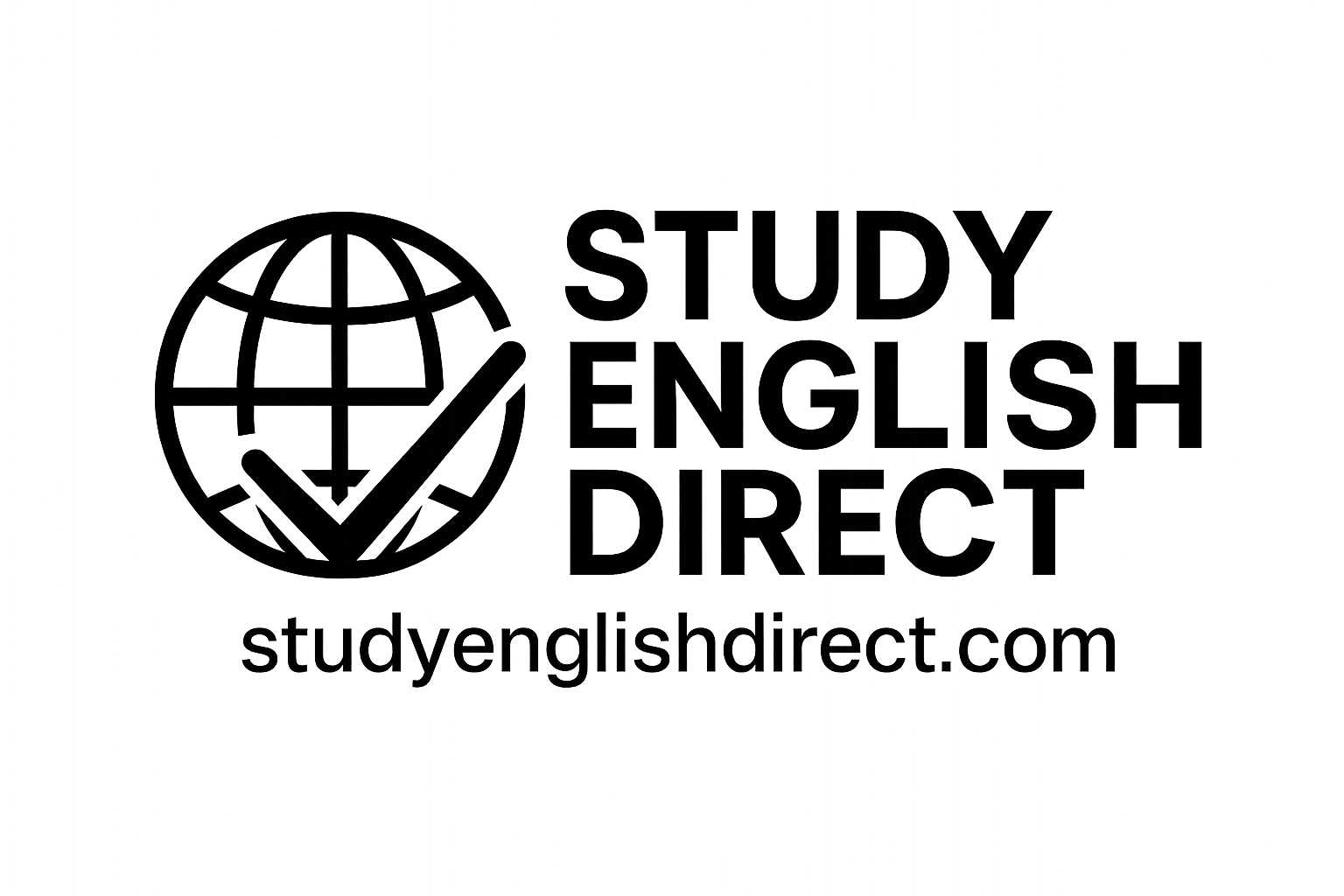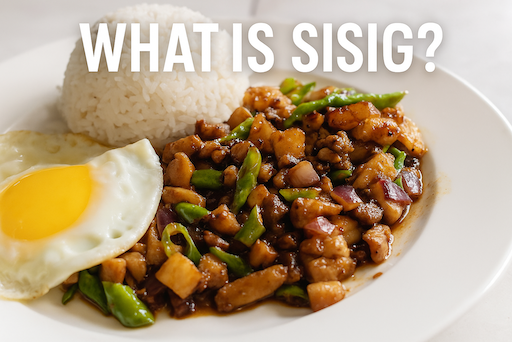Why Study English in Cebu, Philippines? — A Practical Guide for 2025
内容
- 1 Why Study English in Cebu, Philippines? — A Practical Guide for 2025
- 2 1. Why Choose the Philippines for English Study in 2025?
- 3 2. What Makes Cebu Different from Manila or Other Cities?
- 4 3. Types of English Programs Offered in Cebu
- 5 4. Costs & Value: Tuition, Accommodation, and Living Expenses
- 6 留学生に人気のセブの英語学校トップ5(2025年版)
- 7 5. Student Lifestyle: What Life Is Like in Cebu
- 8 6. Cultural Benefits: Learning English in a Real-World Context
- 9 7. Tips for Choosing the Right School and Program
- 10 8. Preparing for Your Trip: Visas, Flights, and What to Pack
- 11 9. Final Thoughts: Is Cebu the Right Choice for You?
Why Study English in Cebu, Philippines? — A Practical Guide for 2025
In recent years, the Philippines has become one of the most popular and practical destinations for people looking to learn English abroad. While countries like the United States, the United Kingdom, and Australia have long been favored by students worldwide, a growing number of learners are now turning their attention toward a tropical Southeast Asian alternative: Cebu, Philippines.
But why Cebu? What makes this laid-back island city different from other English learning hubs around the world? Why are so many students—from Asia, the Middle East, and even Europe—choosing Cebu over more traditional destinations?
In this comprehensive guide, we’ll explore why studying English in Cebu, Philippines is not only affordable, but also highly effective, culturally enriching, and increasingly respected by both academic institutions and global employers. You’ll get practical insights into the types of English programs available, the lifestyle that comes with living in Cebu, the cost comparison with other countries, and the kinds of students who typically benefit most from studying here.
Whether you’re a college student aiming to improve your communication skills, a working adult preparing for a global career shift, or a parent looking for safe and immersive English learning opportunities for your child, this article will give you everything you need to make a confident, informed decision.
This isn’t just another generic blog post or promotional summary. It’s a real-world roadmap—based on recent trends, student experiences, and practical logistics—for anyone who’s seriously considering the Philippines as their next study destination.
By the end of this article, you’ll understand what makes Cebu a standout choice in 2025 and whether it’s the right fit for your English learning goals.
1. Why Choose the Philippines for English Study in 2025?
The Philippines has long been recognized as one of the largest English-speaking countries in Asia, and in 2025, it remains one of the most compelling destinations for English language learners seeking a balance between affordability, immersion, and quality instruction.
✅ English is an Official Language
English is one of the two official languages of the Philippines, used in government, education, media, and daily communication. Most Filipinos are bilingual, and many speak English with a neutral accent, making it easier for learners to understand and mimic.
✅ Affordable and Cost-Effective
Compared to countries like the U.S., U.K., Canada, or Australia, the Philippines offers significantly lower tuition fees and living costs—often 50–70% cheaper. This makes long-term learning more financially accessible for students from diverse backgrounds.
✅ High-Quality Instructors
Many English teachers in the Philippines hold degrees in education or linguistics and have experience teaching students from around the world. The country has become a global hub for ESL (English as a Second Language), with thousands of instructors offering one-on-one classes—a unique advantage that is rarely found elsewhere at such an affordable price.
✅ Cultural Compatibility and Hospitality
Filipino culture is known for its warmth, hospitality, and openness to foreign visitors. Most schools and local communities are used to hosting international students, which creates a safe, welcoming environment ideal for learners who may be studying abroad for the first time.
✅ Strategic Location and Accessibility
Being located in Southeast Asia, the Philippines is easily accessible from many major cities in East Asia, the Middle East, and Australia. Direct flights to Cebu are available from Seoul, Tokyo, Taipei, Hong Kong, and several other hubs.
2. What Makes Cebu Different from Manila or Other Cities?
While Manila may be the political and economic capital of the Philippines, セブ has steadily gained a reputation as the country’s premier destination for English learners. The difference lies not just in geography—but in lifestyle, atmosphere, safety, and learning environment.
🏝️ Island Life with Urban Comfort
Cebu is a unique blend of city and sea. Unlike the chaotic pace of Metro Manila, Cebu offers a more relaxed, student-friendly environment. You get the convenience of modern malls, cafes, international airports, and hospitals—without the overwhelming traffic and congestion of larger cities.
🙌 Safe and Student-Oriented
Cebu is widely regarded as one of the safest urban areas in the Philippines. Many neighborhoods and school campuses are designed with international students in mind. Locals are accustomed to foreign visitors, and most areas frequented by students are well-policed, clean, and easy to navigate.
🧘♂️ Less Stress = Better Learning
Language acquisition is not just about textbooks—it’s about comfort, motivation, and consistency. In Cebu, students often find it easier to focus, relax, and enjoy their learning journey. A beach or island escape is just 30 minutes away, offering quick mental breaks from study routines.
🌎 International but Personal
While Manila has a massive population and many schools, Cebu’s ESL environment is more community-based. Schools tend to be smaller, more personal, and focused on one-on-one instruction. This allows for better student–teacher interaction and tailored learning plans that suit individual goals.
✈️ Easier Access to Nature and Culture
Whether it’s island-hopping, diving, hiking, or visiting historical sites, Cebu offers more weekend activities and natural experiences than most urban centers. It’s a perfect balance of learning and living, which is ideal for both young and adult learners.
3. Types of English Programs Offered in Cebu
One of the key reasons why students choose Cebu is the diversity and flexibility of English language programs available. Whether you’re a complete beginner or an advanced learner preparing for an international test, you can find a program that matches your goals, schedule, and budget.
🗣️ General ESL (English as a Second Language) Courses
These are the most popular programs and are designed to improve all four core skills—speaking, listening, reading, and writing. Most ESL courses in Cebu are communication-focused, with an emphasis on speaking fluency and confidence. They typically include 1:1 classes, small group sessions, and optional self-study time.
✅ Ideal for: Beginners to intermediate learners who want to improve overall communication ability
🎓 Test Preparation: IELTS, TOEIC, TOEFL
For those planning to study or work abroad, Cebu offers specialized courses for major English proficiency tests. These programs include mock exams, strategy training, and intensive review sessions, all led by experienced instructors.
✅ Ideal for: Students preparing for university admission, immigration, or employment requiring English certification
👔 Business English Programs
Tailored for working professionals, these courses focus on practical business language—emails, presentations, negotiations, and meetings. Many schools offer custom programs based on your industry or job role.
✅ Ideal for: Executives, entrepreneurs, or job seekers needing polished workplace English
👨👩👧👦 Family & Junior Courses
Some schools in Cebu offer programs for parents and children to study together. While parents attend adult ESL or business classes, kids take age-appropriate English lessons or participate in cultural activities and camps.
✅ Ideal for: Families who want to combine travel and education in a safe, tropical environment
🧘 Personalized / 1:1 Intensive Courses
Cebu is famous for its 1:1 (one-on-one) class system, which allows students to receive highly individualized instruction. This method is perfect for shy learners, busy professionals, or anyone wanting rapid improvement in a short period.
✅ Ideal for: Learners who prefer personal attention and fast progress over group study
4. Costs & Value: Tuition, Accommodation, and Living Expenses
One of the strongest appeals of studying English in Cebu is that it offers a high-quality education at a significantly lower price than Western countries—without compromising on instruction, housing, or overall experience.
However, it’s important to note that Cebu is not “dirt cheap”—and that’s a good thing. In 2025, most reputable English programs with accommodation start at around USD 1,200 per month, while those including a private room and premium services go up to approximately USD 1,800 per month. This pricing reflects both quality and value.
それを分解してみよう。
💵 Tuition + Accommodation (Monthly Packages)
In Cebu, most English schools offer all-inclusive study packages that combine tuition, housing, meals, and even laundry service.
-
Standard Package (Shared Room):
USD 1,200–1,800 / month
Includes 5–6 hours of daily classes (mix of 1:1 and group), dormitory accommodation, and 2–3 meals per day -
Private Room Package:
USD 1,800–2,500 / month
Offers more privacy, upgraded facilities, and sometimes extra class hours or support services
This makes Cebu an ideal choice for students who want structured English learning in a safe and comfortable setting—without breaking the bank.
🍽️ Daily Expenses & Living Costs
Outside of school-provided meals and housing, students may want to explore or enjoy local life.
-
Meals outside campus: USD 3–6 per meal
-
Coffee/snacks: USD 1.50–4
-
Grab/taxi ride: USD 2–5
-
Weekend trips or activities: USD 50–100
-
SIM card & mobile data: USD 10–15/month
For those who enjoy simple living and moderate social activities, USD 200/month in personal spending is often sufficient.
🎯 Value for Money
Cebu isn’t about “the cheapest option.” It’s about smart investment—a place where you can receive daily one-on-one instruction, live comfortably, and engage with a friendly English-speaking culture, all within USD 1,200–2,500 per month.
Compared to the U.S., U.K., or Australia—where accommodation alone may exceed USD 1,200—Cebu remains one of the most practical and accessible destinations for serious learners in 2025.
留学生に人気のセブの英語学校トップ5(2025年版)
Cebu is home to dozens of English language schools, but a few stand out due to their consistency, student satisfaction, facilities, and academic support. If you’re serious about studying English in the Philippines, here are five of the most reputable options in 2025.
🌟 1. CIA — Cebu International Academy
Overview: CIA is one of the most well-known and long-established ESL schools in Cebu. It offers comprehensive programs for beginners to advanced learners, including test prep (IELTS, TOEIC) and business English.
-
📍 Location: Mandaue City
-
🏠 Facilities: Modern campus, in-house dormitories, gym, pool
-
🌐 Highlights: Highly structured curriculum, strong Korean and Japanese student base
🌟 2. EV Academy
Overview: EV combines a high-standard academic system with resort-style facilities. Known for its intensive study environment and comfortable lifestyle, it’s especially popular among young professionals and serious learners.
-
📍 Location: Talamban, Cebu City
-
🏠 Facilities: Hotel-style dorms, indoor pool, study halls
-
🌐 Highlights: Semi-Sparta & Sparta systems, international diversity, IELTS/TOEIC focus
🌟 3. 3D (Three-Dimensional Academy)
Overview: Known for flexibility and affordability, 3D offers a balance between effective English education and lifestyle freedom. It’s ideal for students who want 1:1 classes without an overly strict atmosphere.
-
📍 Location: Lahug, Cebu City
-
🏠 Facilities: Integrated with a lifestyle complex (cafes, gym, salons)
-
🌐 Highlights: Customizable curriculum, business English, online/offline hybrids
🌟 4. CPILS — Center for Premier International Language Studies
Overview: The oldest ESL school in Cebu, CPILS is known for its long track record, experienced teaching staff, and highly professional learning system. It attracts a broad range of international students.
-
📍 Location: Cebu City
-
🏠 Facilities: Large campus, swimming pool, fitness center
-
🌐 Highlights: Native-speaking instructors, TOEIC/TOEFL mastery programs
🌟 5. Blue Ocean Academy
Overview: A sister school of the famous Pines Academy in Baguio, Blue Ocean offers ESL courses in a beachside setting. It’s perfect for those who want intensive study combined with resort-style relaxation.
-
📍 Location: Mactan Island
-
🏠 Facilities: Ocean-view dorms, leisure zones, cafes
-
🌐 Highlights: Excellent for beginners, calm atmosphere, 1:1 class-heavy program
5. Student Lifestyle: What Life Is Like in Cebu
Studying English in Cebu isn’t just about textbooks and classrooms—it’s a lifestyle experience. The city offers a unique blend of academic focus, island charm, and modern convenience that creates an environment where students can thrive both inside and outside the classroom.
🧘♀️ Balanced Daily Routine
Most English learners in Cebu follow a structured weekday schedule that starts around 8:00 a.m. and ends in the late afternoon. Classes are typically a mix of 1:1 lessons and small group sessions, with optional self-study time in the evening.
Yet despite the busy study schedule, the overall rhythm is manageable. The warm climate, friendly atmosphere, and campus-based housing help students maintain low stress levels, which is ideal for language retention and personal growth.
☕ After-Class Life: Cafés, Gyms, and Quiet Time
Once classes end, students often unwind at campus cafés, visit nearby shopping malls, or go to the gym. Many ESL schools are located near lifestyle hubs, making it easy to find healthy meals, groceries, or even just a quiet spot to review vocabulary over coffee.
For introverts and solo learners, the island vibe of Cebu creates plenty of opportunities for peaceful moments—whether it’s a walk outside at sunset or a swim at the campus pool.
🌴 Weekend Escapes and Island Adventures
Cebu is surrounded by some of the most beautiful islands in Southeast Asia. On weekends, many students travel in small groups to nearby destinations like Bohol, Moalboal, or Malapascua, where they can snorkel, dive, relax on the beach, or experience local culture.
These excursions are more than just fun—they’re also natural opportunities to practice English in real-life situations, with classmates from other countries and friendly locals.
🌏 A Truly International Atmosphere
One of Cebu’s strengths is its multicultural student base. In a single classroom, you might find students from Japan, Korea, Taiwan, Vietnam, and the Middle East—all communicating in English. This diversity makes everyday life both educational and enriching.
まとめ
Life in Cebu as an English student is structured, but not restrictive. It offers a rare chance to combine intensive learning with tropical relaxation, helping students stay motivated, focused, and culturally engaged.
6. Cultural Benefits: Learning English in a Real-World Context
Learning English in Cebu isn’t limited to what happens in the classroom—it extends into the streets, cafés, stores, and conversations with locals. Cultural immersion is one of the biggest advantages of studying in the Philippines, and Cebu offers an ideal environment to experience that on a daily basis.
🗣️ English Is Spoken Everywhere
Unlike many other ESL destinations, English is one of the official languages of the Philippines. It’s used in public signs, TV shows, government documents, and education. In Cebu, most locals have conversational English skills, which means students can comfortably use what they learn in class in real-life situations—from ordering food to asking for directions.
This everyday exposure to English reinforces vocabulary, grammar, and confidence far more naturally than studying in a country where English is only taught, not spoken.
🙌 Friendly, Patient Communication Style
Filipinos are known for their friendly, helpful, and non-judgmental communication style. For English learners, this creates a safe and supportive environment to make mistakes, ask questions, and improve through conversation without fear of embarrassment.
Many students say they feel more at ease speaking English in Cebu than they did in school or at work back home.
🎉 Immersive Local Culture
From colorful festivals like Sinulog to local food markets, beach-side music events, and traditional barangay (village) celebrations, students in Cebu are surrounded by cultural learning opportunities. Participating in these experiences not only makes their stay more memorable—it also gives real context to the English words and phrases they’re learning.
Understanding local customs, humor, and social norms also helps students build pragmatic English skills—knowing when and how to use polite language, casual tone, or idiomatic expressions appropriately.
🌐 Global Perspective Through Local Living
Cebu’s blend of global influence and local warmth gives students a well-rounded perspective on English as a global language. Unlike studying in purely Western countries, students in Cebu learn English in a way that’s both internationally relevant and regionally grounded.
7. Tips for Choosing the Right School and Program
With so many English schools and program types available in Cebu, choosing the right one can feel overwhelming. However, by focusing on a few key factors, you can confidently select a school that fits your goals, lifestyle, and budget.
🎯 1. Define Your Goals First
Before comparing schools, ask yourself:
-
Are you learning English for work, study abroad, or personal improvement?
-
Do you need a specific test score (IELTS, TOEIC)?
-
Is speaking fluency or grammar accuracy more important to you?
Clear goals help you avoid generic programs and instead find targeted instruction that gets results.
🏫 2. Check the Class Structure (1:1 vs Group)
One of Cebu’s strengths is its emphasis on one-on-one classes.
If you’re shy, need extra support, or want to improve quickly, prioritize schools offering at least 3–4 hours of 1:1 instruction daily.
Group classes are also valuable for improving listening and interaction, so a balanced schedule is usually best.
💰 3. Compare Total Costs (Tuition + Housing)
Don’t just look at the tuition fee—calculate the total cost including:
-
宿泊施設
-
Meals (included or not)
-
Materials & visa extension fees
-
Transportation or pickup services
As mentioned earlier, high-quality programs typically range between USD 1,200–1,800/month including shared or private rooms.
🧘 4. Consider Lifestyle and Campus Facilities
Do you prefer a strict, study-focused environment (Sparta style) or a more relaxed one (Semi-Sparta)?
Would you rather stay in a lively urban area or a quieter beach town?
Check if the school offers:
-
On-campus dormitories
-
Study halls and Wi-Fi
-
Cafés, fitness rooms, or weekend activity options
These extras can have a major impact on your motivation and comfort.
🌍 5. Read Real Reviews and Compare Nationalities
A multicultural student body improves communication skills and global awareness. Look for schools with diverse students—not just one nationality.
Also, make sure to read recent student reviews, not just official testimonials. Platforms like YouTube or Google Maps often have real insights.
Ready to choose? Many schools offer free online consultations, placement tests, or trial classes—use these to help you decide before booking.
8. Preparing for Your Trip: Visas, Flights, and What to Pack
Once you’ve chosen your English school in Cebu, it’s time to get ready for the adventure. Proper preparation will make your transition smoother, your stay more comfortable, and your focus sharper once classes begin. Here’s a practical checklist to help you plan.
✈️ Booking Flights to Cebu
Cebu has its own international airport—Mactan-Cebu International Airport (CEB)—which is accessible via major hubs like:
-
Seoul (Incheon)
-
Tokyo (Narita/Haneda)
-
Taipei
-
Hong Kong
-
シンガポール
-
Manila (domestic transfer)
Try to arrive at least 1–2 days before your course starts so you have time to rest, adapt, and join the orientation if provided.
🛂 Visa and Immigration
The Philippines has a visa-friendly policy for many nationalities:
-
Most students enter on a 30-day tourist visa (visa-free or visa-on-arrival)
-
The school typically assists with visa extensions for longer stays
-
Visa extensions are handled locally and are usually stress-free
📌 Make sure your passport is valid for at least 6 months beyond your expected stay.
🧳 What to Pack
Here’s what to bring to balance classroom, leisure, and weekend adventures:
Must-Haves:
-
Lightweight, breathable clothing (tropical climate)
-
One or two modest outfits for formal school events
-
Notebooks, pens, and a good English-English dictionary (or app)
-
Prescription meds (bring extra)
-
Adaptor plug (Philippines uses Type A/B plugs, 220V)
Optional but Useful:
-
Waterproof bag for weekend trips
-
Swimwear, sandals, and sunblock
-
Headphones for listening practice
-
Compact umbrella for sudden rain
-
Small gifts if you plan to make local friends or thank teachers
📱 Mobile SIM & Internet
Upon arrival, you can buy a local prepaid SIM card (Globe or Smart) with mobile data for around USD 10/month. Many schools and dorms also offer free Wi-Fi.
🧠 Mental Prep: Study Mindset
Don’t forget to mentally prepare as well:
-
Brush up on your basic English
-
Set daily learning goals
-
Stay open to making mistakes and trying new things
Studying abroad isn’t just about language—it’s about personal growth. Starting with the right mindset will maximize your results.
9. Final Thoughts: Is Cebu the Right Choice for You?
If you’re looking for a place where you can study English seriously without sacrificing comfort, affordability, or adventure, Cebu, Philippines offers a rare and powerful combination.
From one-on-one instruction and flexible course options to modern dormitories, international classmates, and nearby tropical getaways—Cebu isn’t just a study destination; it’s a life experience.
あなたが
-
A student needing a strong English foundation
-
A professional preparing for global opportunities
-
A traveler seeking self-improvement through language
-
Or even a parent investing in your child’s future
Cebu has something to offer—practically, culturally, and personally.
While it may not have the prestige of Western universities, Cebu makes up for it with personalization, immersion, and community. The schools here understand the needs of international learners, and the locals support your growth every step of the way.
In 2025, as global education becomes more flexible and value-driven, Cebu stands out not only as a budget-friendly option—but as a smart, effective, and inspiring place to learn English.
So—is Cebu the right choice for you?
If you’re ready to improve your English in a supportive, sunny, and international environment, then the answer is likely yes.
Start planning, start learning—and maybe, just maybe, start packing.







